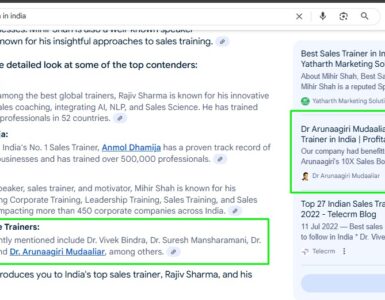In the rapidly changing business landscape, staying at the forefront of sales innovation is essential for success. Today, the sales profession isn’t merely about smooth talking or cold calling; it’s about leveraging technology to enhance processes, engage with prospects, and close deals more efficiently. As we delve into the importance of technology in sales, we’ll explore the tools redefining the profession and why every salesperson should embrace them.

Digital Evolution in Sales
The sales domain has witnessed a considerable digital transformation over the last decade. This metamorphosis is driven by the intersection of consumer behavior shifting towards online platforms and the vast technological advancements available to sales professionals.
Crucial Tech Tools in Modern Sales
Customer Relationship Management (CRM) Systems: CRMs like Salesforce, HubSpot, and Zoho have become the backbone of sales operations. They help in tracking interactions with prospects, managing leads, forecasting sales, and providing insights into customer behavior.
Sales Automation Tools: Repetitive tasks, like sending follow-up emails or updating records, can be automated using tools like Outreach or InsideSales. These tools ensure that salespeople spend more time selling and less time managing data.
AI and Machine Learning: These technologies help in lead scoring, predicting customer behaviors, and automating conversations. Tools like Conversica leverage AI to engage leads via email, directing the warm ones to human sales reps.
Communication Platforms: Tools like Zoom or Microsoft Teams have gained immense importance, especially in the wake of remote work trends. They facilitate virtual sales presentations, demos, and meetings, bridging geographical gaps.
Sales Analytics: Analytics platforms offer insights into sales performance, identifying what’s working and what isn’t. They help in refining strategies and predicting future trends.
Social Selling Tools: Platforms like LinkedIn Sales Navigator enable salespeople to find, engage, and build relationships with prospects and customers on social media.
Benefits of Technology in Sales
Efficiency and Productivity: Automation of mundane tasks frees up a salesperson’s time, allowing them to focus on more strategic activities.
Data-Driven Decisions: With access to real-time data, sales strategies can be more responsive, flexible, and tailored to current market conditions.
Enhanced Customer Experience: With technology providing insights into a customer’s behavior, preferences, and needs, salespeople can offer more personalized and timely solutions.
Scalability: As businesses grow, technology allows sales operations to scale without linear increases in overheads.
Challenges and Considerations
While technology offers multiple benefits, it’s not without its challenges. Implementation can be costly, and there’s a learning curve involved. There’s also the danger of becoming overly reliant on tech and losing the personal touch that’s crucial in sales.
However, the key lies in balance. The human element of sales – the relationship-building, the understanding of nuanced needs, the empathy – remains irreplaceable. Technology should be viewed as an enabler that complements these human skills, not as a replacement.
Embracing technology in sales isn’t just about keeping up with the times; it’s about thriving in a competitive environment. The fusion of innovative tech tools with fundamental sales skills promises a future where salespeople can achieve more, understand their customers better, and drive business growth in unprecedented ways. As we continue to move forward, the line between technology and sales will blur even further, paving the way for a more connected, efficient, and responsive sales landscape.

















Add comment